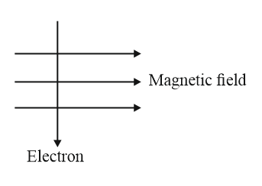Draw a schematic labelled diagram of a domestic wiring circuit which includes (i) a main fuse (ii) a power meter (iii) one light point (iv) a power plug.

Important Questions on Magnetic Effects of Electric Current

On a school trip to Cochin, Reema and Susan were enjoying the beautiful Cherai beach. The trip coordinator teacher called the entire group and divided them into two teams to play beach volleyball. Everybody was enjoying when suddenly Reema found out that she has dropped her bracelet somewhere. Everyone tried to search for it but could not, as it got mixed with beach sand and stones. But Susan has a brilliant idea; she took out the magnet badge from her bag and started with help of magnet. Soon the bracelet got attracted to the magnet and Reema got her favourite bracelet back.
(a) Can you explain why the bracelet got attracted to the magnet?
(b) List two applications of magnetism.
(c) What values did Reema and Susan show?
The students of class were excited as they were shown a documentary on "power consumption" during the Science fair. The documentary explained that we use alternating current in our home and factory which is dangerous if not handling properly. Short-circuiting and overloading are the two main causes of electrical hazards. Short-circuiting occurs when the live wire and the neutral wire come into direct contact or touch each other. In this situation, the resistance of the circuit becomes very small and a very large current flows through the circuit which produces a large amount of heat. This heat raises the temperature of the circuit and sparking at the point of short-circuiting. Overloading means the flow of current in the circuit beyond a specified limit. Overloading occurs due to an accidental rise in supply voltage. Sometimes overloading is caused by connecting too many appliances of high power rating to a single socket. At the end, students were happy as they got lot of information on power use.
(a) When does the short-circuiting occur?
(b) What do you mean by the term 'overloading'?
(c) As a student what initiative would you take in the common concern of 'electrical hazards'.
